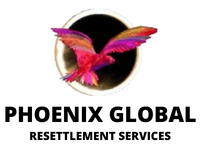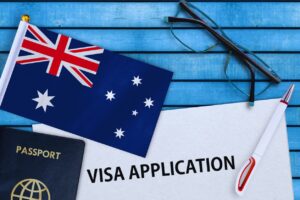Canada Immigration Consultants — A Practical Guide from an Expert
Thinking about moving to Canada? Working with experienced Canada immigration consultants can save months of time and reduce risk. Choose a consultant who is licensed, transparent, and focused on your best pathway — that’s the difference between a project that drags and one that succeeds smoothly.
1 — Why professional help matters for Canadian immigration
After ten years advising clients on overseas moves, I can say this plainly: Canada’s immigration system is paperwork-heavy and rules-driven. Small errors — a missed form, an unclear translation, an omitted credential — can set your application back months or cause refusal.
That’s where Canada immigration consultants add value. They know which category fits your profile, how to present evidence persuasively, how to anticipate information requests from Immigration, Refugees and Citizenship Canada (IRCC), and how to manage timelines so you don’t miss critical windows.
A good consultant is not a shortcut; they are an insurance policy: they reduce uncertainty, advise on realistic chances, and help you plan financially and logistically for the move.
2 — What services good consultants provide
Not all consultants offer the same scope. Here are services that you should expect from a reputable firm:
- Initial eligibility assessment: realistic evaluation of your profile (education, work experience, language, funds).
- Pathway recommendation: Express Entry (FSW, FST, CEC), Provincial Nominee Programs (PNPs), family sponsorship, study permits, work permits, or business/investor streams.
- Document guidance & verification: accuracy, certified translations, credential evaluations (ECA).
- Application preparation & submission: complete forms, cover letters, and tailored presentations of your case.
- Communication management: responding to IRCC requests, managing portals, and uploading documents.
- Pre-landing & settlement assistance: open bank accounts, find housing, school placement, and initial orientation.
- Post-landing follow-up: PR card processing, citizenship advice, or family sponsorship planning.
When a consultant bundles these services and explains fees clearly, you gain predictability.
3 — How Canadian immigration is structured — the most common pathways
Understanding the main options helps you judge whether a consultant’s advice fits your goals. Here are the pathways I see most often:
- Express Entry (Economic Class): A points-based pool for skilled workers. The three substreams are Federal Skilled Worker (FSW), Federal Skilled Trades (FST), and Canadian Experience Class (CEC). Language scores, education credentials, and work experience matter.
- Provincial Nominee Programs (PNPs): Provinces nominate candidates for local labor needs. Some PNPs link to Express Entry for faster processing.
- Study Permits: For those pursuing education as a step to PR — often paired with post-graduation work permits (PGWP).
- Work Permits: Employer-specific or open work permits; some lead to permanent residence later.
- Family Sponsorship: Spouse, common-law partners, dependent children, and some parents/grandparents streams.
- Business & Investor Programs: For entrepreneurs; requirements vary widely by province.
A capable consultant will map your personal situation to these routes and explain trade-offs — speed versus certainty, cost versus flexibility.
4 — How to evaluate and pick the best immigration consultants
Not all advisors are equal. Use this selection checklist — it’s what I use when vetting firms:
Licensing & credentials
- Ask for their CICC (College of Immigration and Citizenship Consultants) registration number if they work with Canadian immigration. Only licensed RCICs or Canadian lawyers should represent you before IRCC.
- Verify the number on the official CICC register.
Proven track record
- Request anonymized case studies or client success stories similar to your profile (e.g., skilled-worker, student-to-PR, family sponsor).
- Check online reviews but prioritize direct references.
Transparency on fees & services
- A clear contract: services included, fees (government vs professional), payment milestones, refund policy.
- Beware of fixed promises of success — legitimate consultants never guarantee approval.
Communication & support
- Does the consultant assign a case officer? How quickly do they respond to calls or emails? Will they provide a project timeline with milestones?
Document handling & data security
- Confirm secure methods for transmitting personal documents (encrypted portals or secure uploads).
- Ask how they store and dispose of documents.
Ethics & red flags
- Watch for promises of “backdoor” routes, bribery, or undocumented guarantees.
- Avoid consultants who advise misleading claims (false work experience, fabricated documents).
Value-added services
- Settlement support (banking, housing), job search coaching, or provincial nomination strategy are useful extras.
By following these checks you’ll narrow down to a few firms that can actually deliver.
5 — Typical timeline, fees and a documents checklist
Timelines (indicative)
- Eligibility assessment: 1–2 weeks.
- Express Entry profile and supporting documents: 4–8 weeks.
- PNP application (if used): 3–6 months to receive a nomination (varies by province).
- IRCC processing after submission: from a few months to over a year, depending on stream.
Fees (typical structure)
- Government fees: set amounts for processing, biometrics, PR right of permanent residence fee, etc.
- Professional fees: vary widely. Expect a range from modest packages for document-only help to higher fees for end-to-end case management and settlement support. Good consultants list fees clearly.
Core documents you’ll need
- Passport and identity documents.
- Education credentials and ECA.
- Language test results (IELTS, CELPIP).
- Employment reference letters with duties, dates, and hours.
- Police clearance certificates (police checks).
- Medical exam reports from panel physicians.
- Proof of funds (if applicable).
- Marriage, birth certificates for family members (translations as required).
A consultant saves time by preparing a clean, complete document bundle that avoids IRCC requests for missing items.
6 — Common mistakes applicants make — and how the best consultants prevent them
From my practice, these mistakes recur:
- Incomplete employment letters: missing detailed job duties or official letterhead. Good consultants supply templates and coach referees.
- Mismatch in dates and documents: conflicting dates across CV, contracts and bank records. Consultants perform cross-checks.
- Poor translations or uncertified documents: consultants direct you to accredited translators.
- Unrealistic pathway choice: applying for a stream for which the profile has low chance. An experienced consultant advises alternative strategies.
- Late responses to IRCC requests: can lead to application abandonment. Consultants monitor timelines and set client reminders.
A proactive consultant mitigates these risks and keeps your case moving.
7 — Helpful enhancements: templates, checklists and next steps
Here are practical tools a consultant should provide or help you prepare:
- Employment letter template that satisfies IRCC detail requirements.
- Document checklist tailored to your stream.
- Timeline tracker with milestones and who’s responsible.
- Pre-landing checklist (housing, SIN, healthcare registration, school enrollment).
- Settlement pack with local services in your target province (housing, banks, schools, community groups).




